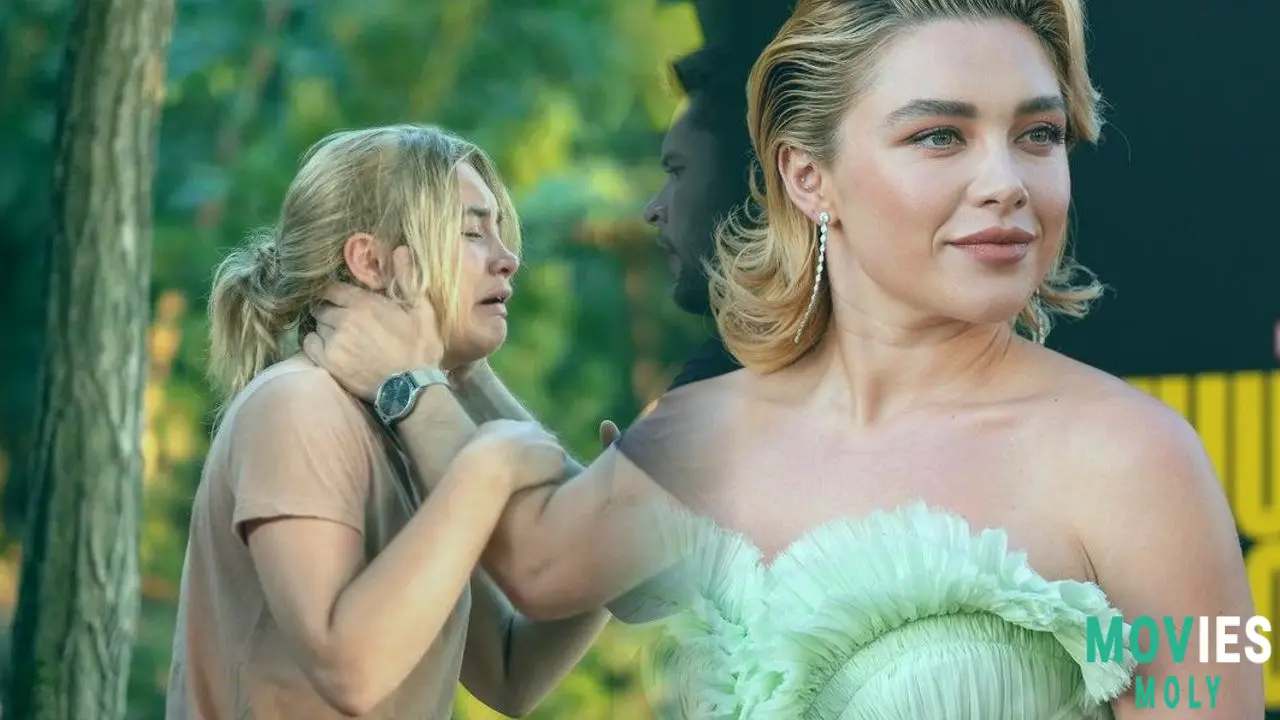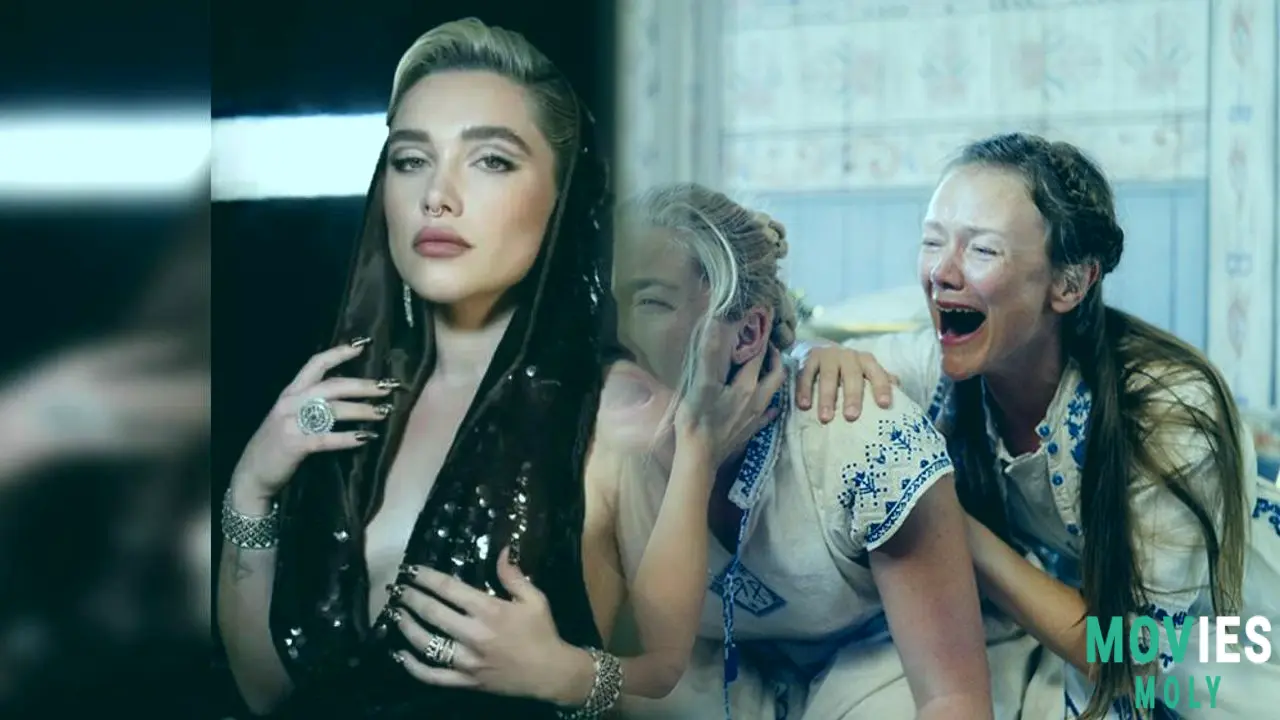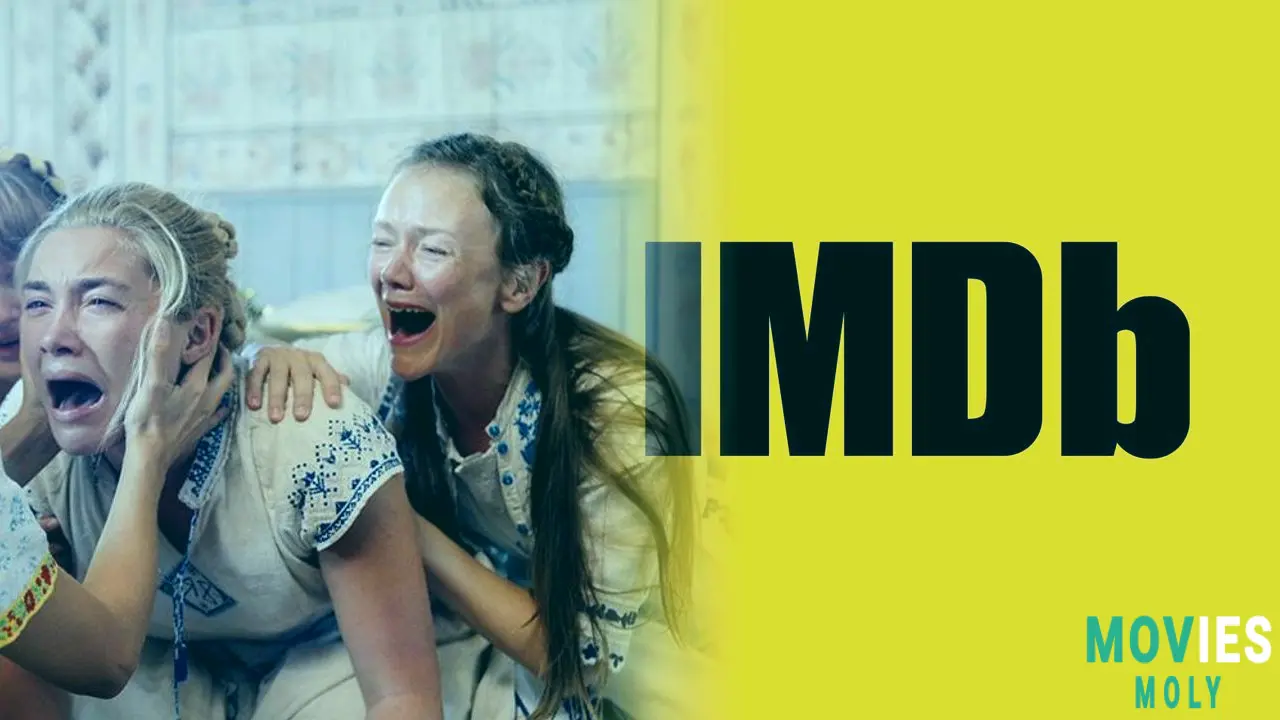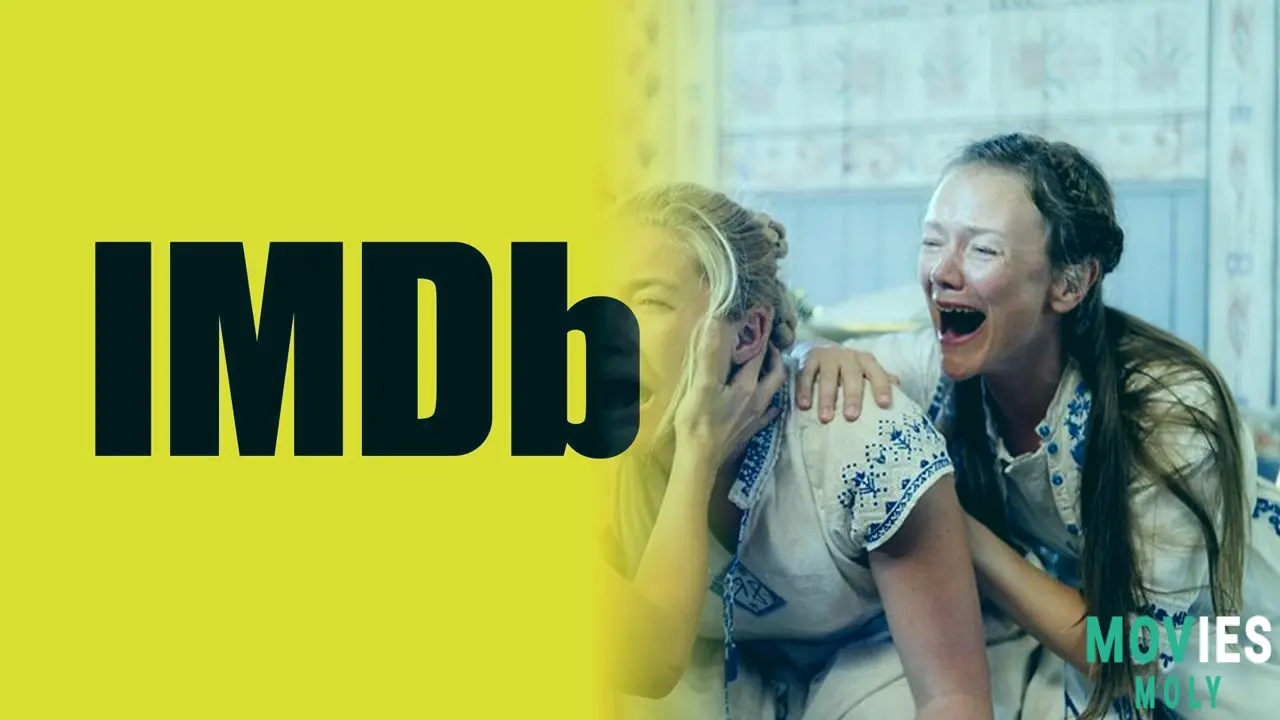Stepping into the shoes of a grief-stricken character pushed Florence Pugh to her limits on the set of Ari Aster's 2019 horror hit, Midsommar, a journey she now openly admits plunged her into six months of depression.
TL;DR: The Quick Takeaway from Florence Pugh's Midsommar Revelations- Florence Pugh experienced a six-month period of depression after filming Midsommar, attributing it to the intense emotional manipulation she put herself through for the role.
- Her acting process for Dani involved imagining increasingly severe scenarios of grief, from a sibling's death to her entire family's funeral.
- Pugh has vowed to avoid such emotionally exhausting roles in the future to protect her mental well-being, though she holds no ill will towards director Ari Aster.
Diving Deep into Dani's Despair: The Emotional Cost of "Midsommar"

Imagine being so deeply immersed in a character's pain that it lingers, a persistent shadow, long after the cameras stop rolling. This was the reality for Florence Pugh, the talented 29-year-old actress, after her groundbreaking performance as Dani in Ari Aster's folk horror film, Midsommar. Recently, on "The Louis Theroux Podcast," Pugh candidly shared the profound impact the role had on her mental health, revealing it led to a half-year struggle with depression.
"I just can't exhaust myself like that because it has a knock-on effect," Pugh stated, reflecting on the arduous process of portraying Dani. Her character, a young American woman grappling with immense family trauma and a crumbling relationship, descends into a psychological breakdown during a disturbing Swedish summer festival. The emotional demands of the part were unlike anything Pugh had encountered before, pushing her to extremes she now regrets for personal well-being.
"I think [Midsommar] made me sad for like six months after and I didn't know why I was depressed. I got back after shooting 'Little Women,' which was such a fun experience and obviously a completely different tone from 'Midsommar,' so I think shelved all of that. And then when I got home for Christmas, I was so depressed and I was like, 'Oh, I think that's from 'Midsommar,' and I didn't deal with it and I probably shouldn't do that again."
— Florence Pugh, "The Louis Theroux Podcast"Pugh meticulously described the escalating intensity of her method. She began by imagining the news of a sibling's death. As filming progressed, this vivid imagination deepened, moving to picturing coffins, and ultimately, by the end of the shoot, visualizing her entire family's funeral. This self-imposed mental gauntlet was an attempt to authentically convey a level of grief and mental health crisis she'd never personally experienced, explaining she needed to "sound pained" rather than just cry. Source: [Rolling Stone, "Florence Pugh Says ‘Midsommar’ Plunged Her Into Months of Depression", Nov 11, 2025].
The Immediate Aftermath: A Flight to "Little Women" and a Cry for Dani

The transition from the unsettling world of Midsommar to the warm, vibrant set of Greta Gerwig's Little Women was almost immediate, with only three days separating the two productions. This abrupt shift, rather than offering instant relief, brought a delayed emotional reckoning for Pugh. On the flight from Budapest, where Midsommar was filmed, to Boston for Little Women, she found herself uncontrollably weeping.
This wasn't just exhaustion; it was a profound sense of leaving a part of herself, or rather, leaving Dani, behind in that nightmarish field. "My brain was obviously feeling sympathy for myself because I'd abused myself and really manipulated my own emotions to get a performance, but I also then felt sorry for what I'd done," Pugh confessed. It was a stark realization of the emotional manipulation she had inflicted upon herself, a manipulation that had clearly left a lasting imprint.
A Counterpoint: The Director's Vision and the Nature of Collaborative Artistry

It’s crucial to clarify that Pugh’s intense experience was a result of her self-devised acting technique, not any directive or pressure from the film’s director, Ari Aster. Pugh has consistently spoken highly of Aster, describing him as "peculiar in a mad genius kind of way" and even "a stand-up comedian at heart." She recalled how Aster would facilitate "therapy sessions" with her and co-star Jack Reynor, in character, to delve into their roles, highlighting a supportive, albeit unique, creative environment. Source: [Variety, "Florence Pugh Says ‘Midsommar’ Led to Six Months of Depression Because ‘I’d Abused Myself’", Nov 11, 2025, referencing a 2023 New York Times interview].
This distinction is important because it shows the fine line between a director's demanding vision and an actor's personal commitment. While Aster created the world and the challenging script for Dani, Pugh's deep dive was her own choice, a testament to her dedication to the craft. The resulting performance was universally praised, with Peter Travers of Rolling Stone calling her work "wonders in showing us a character who grows in confidence and toxic strength."
However, the trade-off here is clear. The brilliance on screen came at a significant personal cost. This isn't a flaw in the film or the direction, but a limitation inherent in certain forms of method acting, where blurring the lines between self and character can have severe psychological repercussions. It highlights the often unseen sacrifices actors make to bring authenticity to their roles.
Example: The Unseen Toll of Empathy in Performance
Consider an actor, let's call him Alex, preparing for a role as a frontline medic in a war drama. To truly understand the character's trauma, Alex decided to volunteer at an emergency trauma center for weeks, witnessing raw pain and life-or-death situations. While his performance later earned him critical acclaim for its gritty realism, Alex found himself struggling with recurring nightmares and anxiety for months afterward. He, like Pugh, learned the hard way that while empathy can fuel powerful art, unchecked emotional immersion can leave deep, personal scars, forcing him to re-evaluate his approach to future emotionally charged roles.
Understanding the Trade-Offs of Intense Performance

Florence Pugh's experience brings into sharp focus the demanding nature of intense dramatic acting, particularly for roles that require a deep exploration of human suffering. On one hand, her commitment yielded a performance that many consider iconic, elevating Midsommar and solidifying her status as a formidable talent. Audiences connect deeply with such authentic portrayals, which can make a film resonate long after viewing.
On the other hand, the human mind and body have limits. Repeatedly tapping into profound sadness or simulating trauma can lead to real-world psychological distress. Pugh's journey underscores the vital importance of boundaries and self-care in creative professions, especially for actors who essentially use their emotional selves as tools. It’s a delicate balance: achieving raw, believable emotion without sacrificing personal well-being.
Looking Ahead: Florence Pugh's Future Choices and the Evolution of Her Craft

Pugh's declaration to avoid similar roles is a significant personal and professional decision. It indicates a clear shift in her approach to acting, prioritizing her mental health and sustainable performance practices. This doesn't mean she'll shy away from challenging roles, but rather that she'll seek different methods of preparation that don't require the same level of self-abuse.
Her openness about this struggle contributes to a broader conversation in Hollywood about actor welfare and the psychological demands of the craft. It encourages a more mindful approach to intense characters, suggesting that powerful performances don't necessarily have to come at such a steep personal cost. For fans, this means we might see Pugh explore different genres or roles, but always with the same dedication, albeit a healthier one.
Your Burning Questions About "Midsommar" and Florence Pugh's Role, AnsweredWhat is Midsommar about?
Midsommar follows Dani, a young woman reeling from a devastating family tragedy, who reluctantly joins her emotionally distant boyfriend and his friends on a trip to a remote Swedish village for a midsummer festival. What begins as an idyllic retreat quickly devolves into a terrifying experience as the group becomes entangled in the sinister rituals of a pagan cult.
Where can I watch Midsommar?
As of late 2025, Midsommar is widely available on various streaming platforms, typically for rent or purchase. Availability on subscription services can vary by region and time, so check popular options like Amazon Prime Video, Apple TV, YouTube Movies, or your local streaming providers.
What is the runtime and rating of Midsommar?
The theatrical cut of Midsommar runs for approximately 2 hours and 28 minutes. There is also an extended director's cut, which is longer. The film is rated R for strong bloody images, graphic nudity, drug use, and language, making it suitable for mature audiences only.
Will Florence Pugh do another horror film like Midsommar?
Based on her recent statements, it's highly unlikely Florence Pugh will take on another role that requires the same level of self-imposed emotional distress as Dani in Midsommar. While she hasn't ruled out horror entirely, her focus is now on roles and methods that protect her mental health, ensuring a more sustainable career trajectory.
Sources for Our Story- Variety: Florence Pugh Says ‘Midsommar’ Led to Six Months of Depression Because ‘I’d Abused Myself’: ‘I Just Can’t Exhaust Myself Like That’ Again (Nov 11, 2025, Zack Sharf)
- Rolling Stone: Florence Pugh Says ‘Midsommar’ Plunged Her Into Months of Depression: ‘I’d Abused Myself’ (Nov 11, 2025, Charisma Madarang)
- The Wrap: Florence Pugh Won’t Take Roles Like ‘Midsommar,’ Which Caused a 6-Month Depression: ‘Can’t Exhaust Myself Like That’ (Nov 11, 2025, Jacob Bryant)
- Times of India: Florence Pugh reveals ‘Midsommar’ left her depressed for six months, vows to avoid roles that harm her mental health (Nov 12, 2025, TOI Entertainment Desk / IANS)
- A Deeper Appreciation for Acting: Understand the immense personal dedication, and sometimes sacrifice, that goes into creating truly memorable on-screen performances.
- Mental Health Matters: Recognize that even highly successful individuals like Florence Pugh openly discuss mental health challenges, normalizing the conversation for everyone.
- Informed Film Choices: When you see a deeply intense performance, remember there's often a complex human story behind its creation, inviting a more empathetic viewing experience.
- Florence Pugh's Evolving Career: Anticipate an actress who continues to deliver powerful roles, but with an added layer of wisdom and self-preservation in her creative process.






